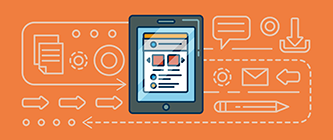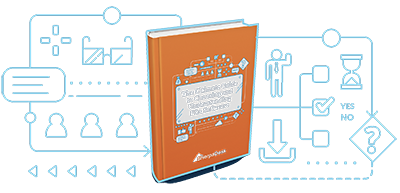By Carrie Dagenhard (Tech Writer)
Working in IT requires a proverbial laundry list of technical skills, software proficiencies, and certifications. And, as an IT leader, you know that expanding your team's expertise is vital to staying ahead of industry trends and their evolving demands.
But there’s another set of competencies your team needs to expand upon to improve productivity, create a more positive work environment, and ensure success: customer service skills.
In fact, these abilities are so essential to today’s IT work that a whopping 78 percent of HR leaders say they’re focused on finding more tech employees with soft skills, according to a study by West Monroe, and another 67 percent admitted they withheld a job offer because a candidate lacked those proficiencies.
So the reality is that technical proficiencies alone aren’t enough to excel as an IT professional nowadays, but which customer service skills make the most significant impact?
Here are Five Customer Service Skills Every IT Team Needs to Master
Verbal Communication
Communication is the bedrock of any successful team — regardless of its responsibilities. And nearly every organizational failure can be traced back to poor communication. When team members can’t effectively consume information or convey it to others, it creates unnecessary hurdles for everyone.
When it comes to verbal communication, there are two things you should focus on:
Active Listening
Active listening goes beyond simply hearing what someone is saying. An active listener also picks up on nonverbal cues (such as body language, pauses, and inflections), digests that information, and makes an effort to show the speaker they’re paying attention. Active listeners often maintain eye contact and nod or use facial expressions to show they understand what’s being said.
Speaking
Good speakers enunciate, stop to ensure the listener understands, and strive to deliver information in a way that’s simple, engaging, and easy to understand.
Digital Communications
In a time when most communication happens online, digital communication is equally as important as face-to-face verbal communication. But while most of us excel at communicating quickly online, we don’t always do it mindfully.
Here are a few digital communication etiquette tips that can improve digital communication efforts:
Beware of Caps Locks
Some people use all-caps as a way to emphasize critical pieces of information, but this can come off as combative and threatening — not to mention it’s hard to read.
Use Punctuations
Ignoring punctuation in your messages can make you appear disinterested or careless, while over-using punctuation (such as excessive exclamation points or ellipses) can make you sound passive-aggressive. When in doubt, stick to correct grammar.
Always Start With a Greeting
Jumping into a discussion without taking time to greet the other party is disrespectful, so always be sure to start with a simple, “Good morning” or “Hope you’re doing well.” A little consideration goes a long way.
Develop Empathy
As an IT pro, it’s easy to become aggravated by users who come off as demanding or those who make careless errors. But it’s important to keep in mind that when someone needs your assistance, they’re likely in an incredibly frustrating situation. 
Whether it’s an equipment failure, software trouble, or a nerve-wracking security issue, try to put yourself in your users’ shoes and acknowledge their emotions. By remaining kind, helpful, and focusing on not losing your patience, you’ll ensure a much easier experience for everyone involved.
Conflict Resolution
From stressed teammates to exasperated users, when you’re dealing with someone who has become irate and challenging to talk to, it’s crucial you quickly de-escalate the situation.
Start by working to control your own emotions and remaining calm. If you notice yourself getting worked up, stop and take a few deep breaths. Then, let the other party know you understand why they’re upset and that you’re going to do your best to help them. Sometimes simply acknowledging and validating a person’s emotions will calm them down enough for a more productive conversation.
Accountability
We all make mistakes — it’s part of being human. But as a professional, it’s important to own your missteps. Instead of assigning blame or coming up with excuses, recognize your pitfalls and commit to learning from them. Not only is personal responsibility a sign of maturity, but it’s also a helpful skill from a customer service perspective. When someone acknowledges their mistakes and assumes responsibility, they’re seen as more honest and trustworthy — which can be beneficial when working directly with users.
Takeaway

As any successful tech leader knows, it takes more than technical prowess to excel in the IT world. In addition to mastering the tools and processes necessary to perform core duties, enhancing customer service skills will help you and your team drive even more success. By focusing on communication habits, digital etiquette, and the ability to remain cool and calm under pressure, you can be more effective as a team, experience fewer headaches, and help your business thrive.








comments